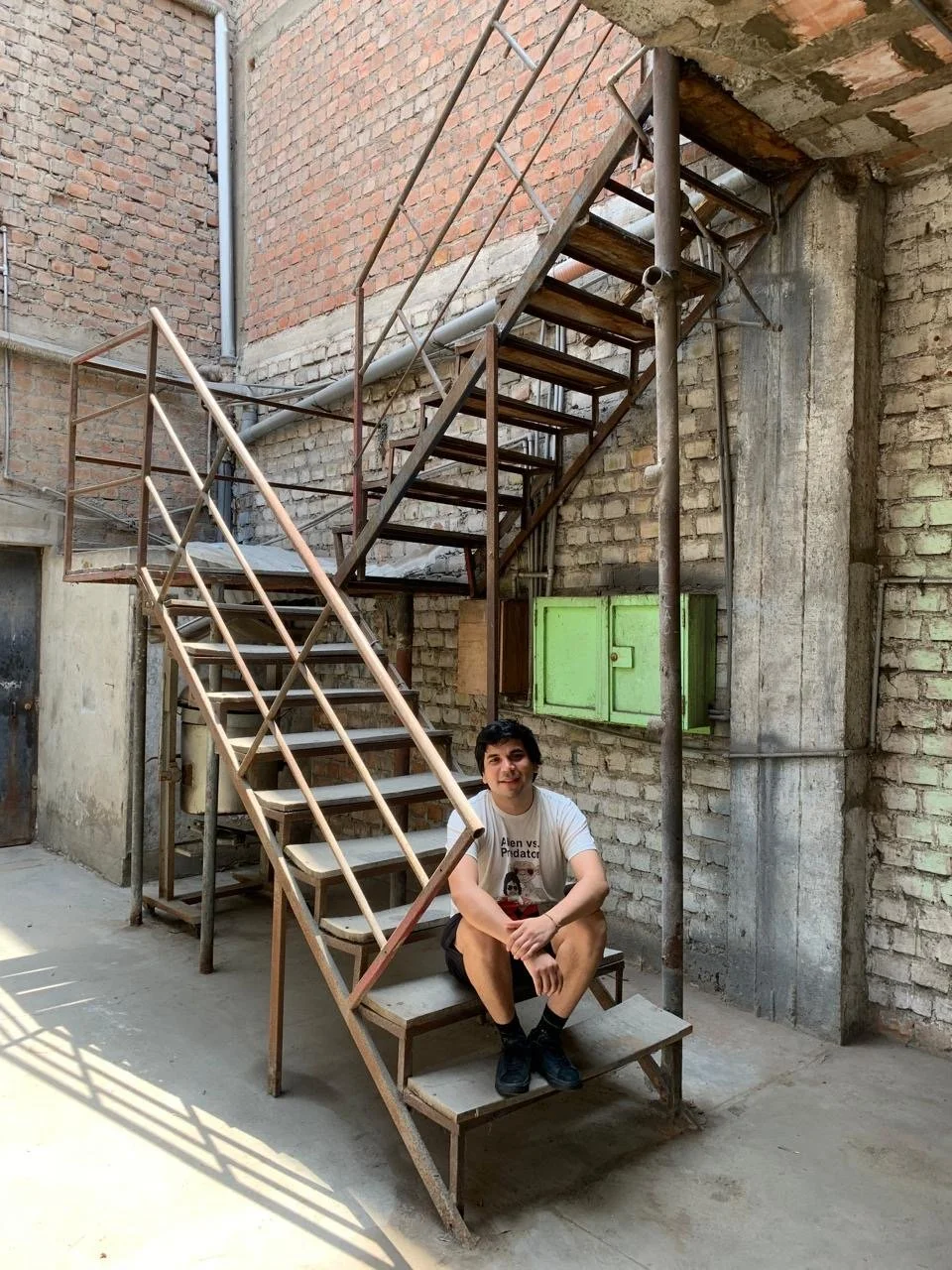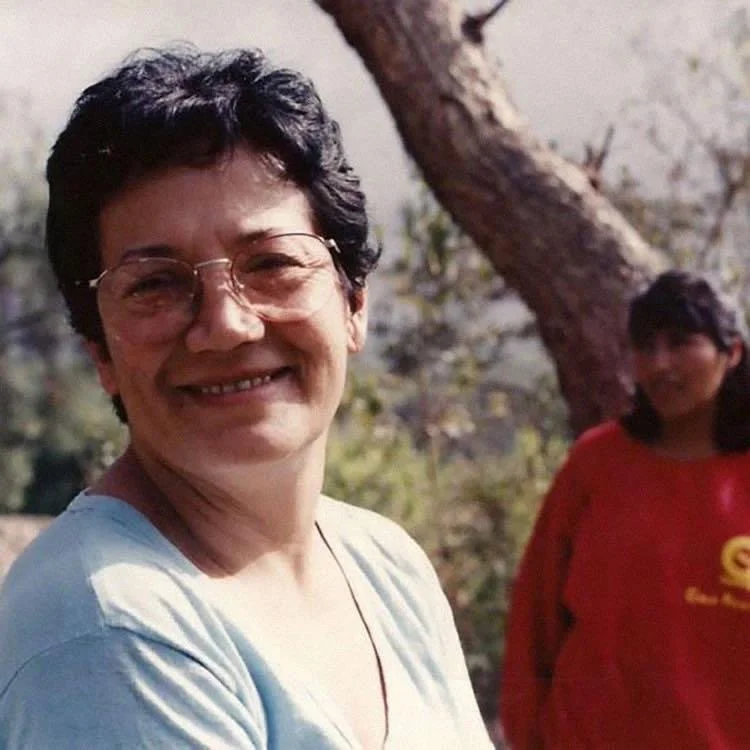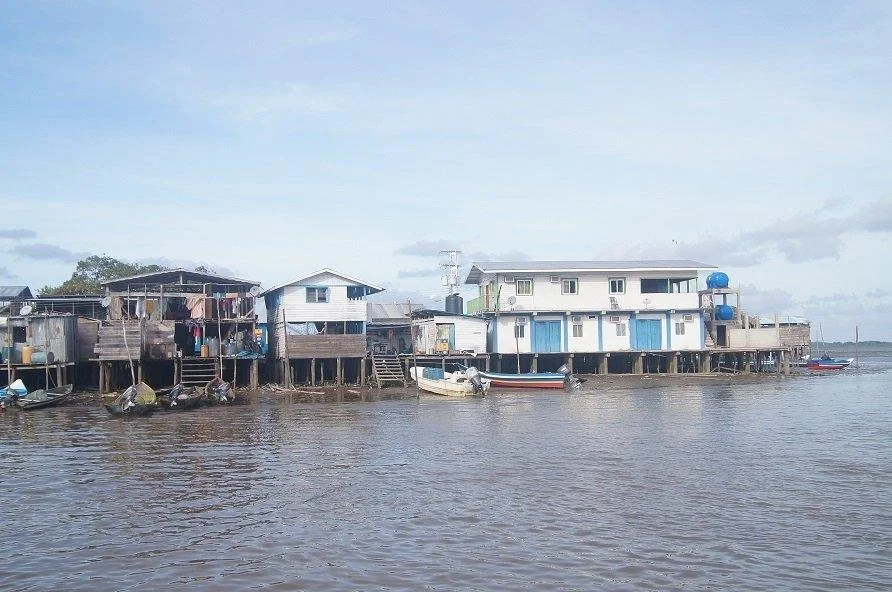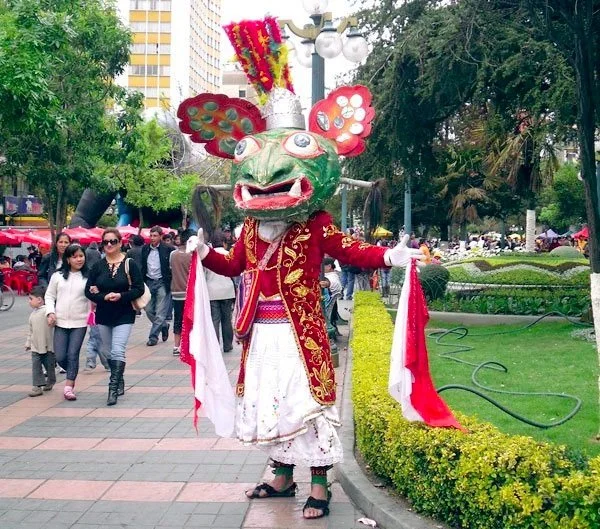ARTICLES

This past March 3 marked the ninth anniversary of the assassination of Berta Cáceres, one of Latin America's most courageous human rights defenders. Her life, defined by a relentless defence of justice, continues to serve as a beacon of resistance against the violence faced by environmental defenders. Talking about Berta today is more urgent than ever, as Latin America continues to be the most dangerous region for environmental activists and indigenous rights defenders. In this context, Berta's story is not only about the struggle for nature conservation but also about the dignity of the people who have long cared for it.
Songs from Willie Colón’s El Gran Varón (1989) to Bad Bunny’s NUEVAYoL (2025) have played a significant role in the lives of many Latinos. They are a representation of a diverse history and culture. These songs, backed up by trumpets and timbales, manage to transgress differences in generations and nationalities, which is often a difficult task.
Ecuador is facing an unprecedented security crisis, reflected not only in the rise of homicides and acts of violence but also in the alarming increase of missing persons. Only in 2023, 6,874 disappearances were reported in the country, of which 394 ended with the discovery of the victims' lifeless bodies. By the end of 2024, 828 cases remained under investigation, nearly 100 more than the previous year, according to the Ministry of the Interior's database.
Peruvian filmmaker María Barea arrived in Madrid on June 14 to present her film Antuca at the inauguration of the Peruvian Film Festival in Madrid. Before coming to Madrid, she visited London — where they screened Antuca and Porque quería estudiar at the Barbican, and Miss Universo en el Perú at King’s College London, in an event organised by the Anti-Colonial Film Club thanks to a grant from the Film Studies department — Lisbon, and Catalonia, where she also presented her work and participated in discussions.
Have you ever experienced a blackout? And if you have, how long has it usually lasted? Maybe a few minutes? An hour?
Well, for a small town in Venezuela, this has been the reality for seven years. Santa Catalina is a small river side town with a population of around 1,500 citizens, located in the northeastern state of Delta Amacuro in Venezuela. In 2017, the lives of the people changed, as the town lost its access to electricity and clean water.
The rise of digital nomadism in Latin America has turned cities like Medellín into tourist hotspots, but this growth often leads to gentrification, displacing local residents, and eroding cultural identities. While tourism boosts economies, it frequently fails to benefit disadvantaged communities. This article examines the urgent need for policies that ensure equitable distribution of tourism's financial gains, emphasizing the importance of preserving local culture and community well-being in the face of rapid change.
Blake Simons interviewed Mary Jiménez about her latest film, Fuga (2024), co-directed with Bénédicte Liénard, which focuses on the homophobia inflicted by the Shining Path in the Peruvian Amazon. They speak about fusing documentary and fiction and the importance of putting discrimination on screen.
Film critic Blake Simons speaks with Teddy Williams about his work, in particular his latest feature The Human Surge 3. They touch the topics of creating an atypical queer space on screen, Teddy’s experience directing through a VR headset, the future potentialities and current limitations of VR cinema, and his connection and disconnection from the contemporary Argentine cinema scene.
Matteo Amaral discusses the so-called “Orloff effect”, according to which political and economical changes that take place in Argentina foreshadow those in Brazil.
Darla Timewell reflects on the post-cinematic aesthetics of Argentinian Teddy William’s latest film, The Human Surge 3, which premiered at the ICA in an event organized together with Cinema Mentiré. The film will be showing at the ICA from the 5th of April.
Conversation with Uruguayan filmmaker Alejandro Legaspi, member of Grupo Chaski, the Peruvian filmmaking collective formed in the 1980s.
Antonio Pinto discusses Chilean director Felipe Gálvez’s first feature film, Los colonos / The Settlers (2023), which won the FIPRESCI Prize at Cannes last year.
Abbey Villasis compiles three poems from Chilean poet Pablo Neruda’s Love Poems. Includes versions from the English translation by Donald D. Walsh, as well as the originals in Spanish.
The A*musing Co Lab, performance collective made up by Jamil Nicolle, Gao Shuyi and Rukmini Sircar, presented their site-specific piece last October at the Bloomsbury Festival. Here, they cite their inspirations and reflect on their piece.
Antonio Pinto writes about his encounters with Kleber Mendonça Filho’s films. He focuses particularly on Pictures of Ghost (2023), his last film, and on how, through the Brazilian' director’s work, the spectator can access a world of ghosts.
A short story by Lucas Cornejo Pásara that plays with the point of view of a jealous girlfriend. Original in Spanish and English translation included.
Abbey Villasis traces the connection between Spanish-style bullfighting and the ancient practice of Minoan bull-leaping, exploring the questions this raises today.
Young Mexican photographer Joaquín Castillo talks with Lucas Cornejo Pásara about his work and his path to working with the world’s top brands.
Martín Rejtman, Argentinian filmmaker and writer, whose latest film, La práctica (2023), screened at the LFF last month, talks with Patricio Ghezzi Novak about his work.
Antonio Pinto writes about three films by Argentine director Matías Piñeiro - Viola (2012), La princesa de Francia (2014) and Hermia & Helena (2016)
Argentine writer Hernán Díaz talks with Lucas Cornejo Pásara about Trust, his Pulitzer Prize winning novel.
A coming of age story about three siblings who stand on the verge between having fun and breaking the law.
Daniel Ossorno-Reyes delves into the cultural differences surrounding petty crime in Latin America and Europe
KCL graduate and El Cortao’ co-founder Henrique Arevalo gives a retrospective on the Venezuelan presidential crisis
Alicia Badault delves into the Aymara tradition of Tata Jack’a Danzanti, seen in Bolivian director Jorge Sanjinés’ filmography
El Cortao’s Gustavo Nucette Fabelo explores the impact of Venezuela’s biggest musical icon
The London Financial and El Cortao’ Present: Carla Suárez analyses the causes and impacts of Gabriel Boric’s incoming presidency with a special focus on neoliberalism’s future in Chile.
Catalina Fazio Belán demonstrates the grave environmental perils facing South American states and the urgent need for their governments to take action.




























